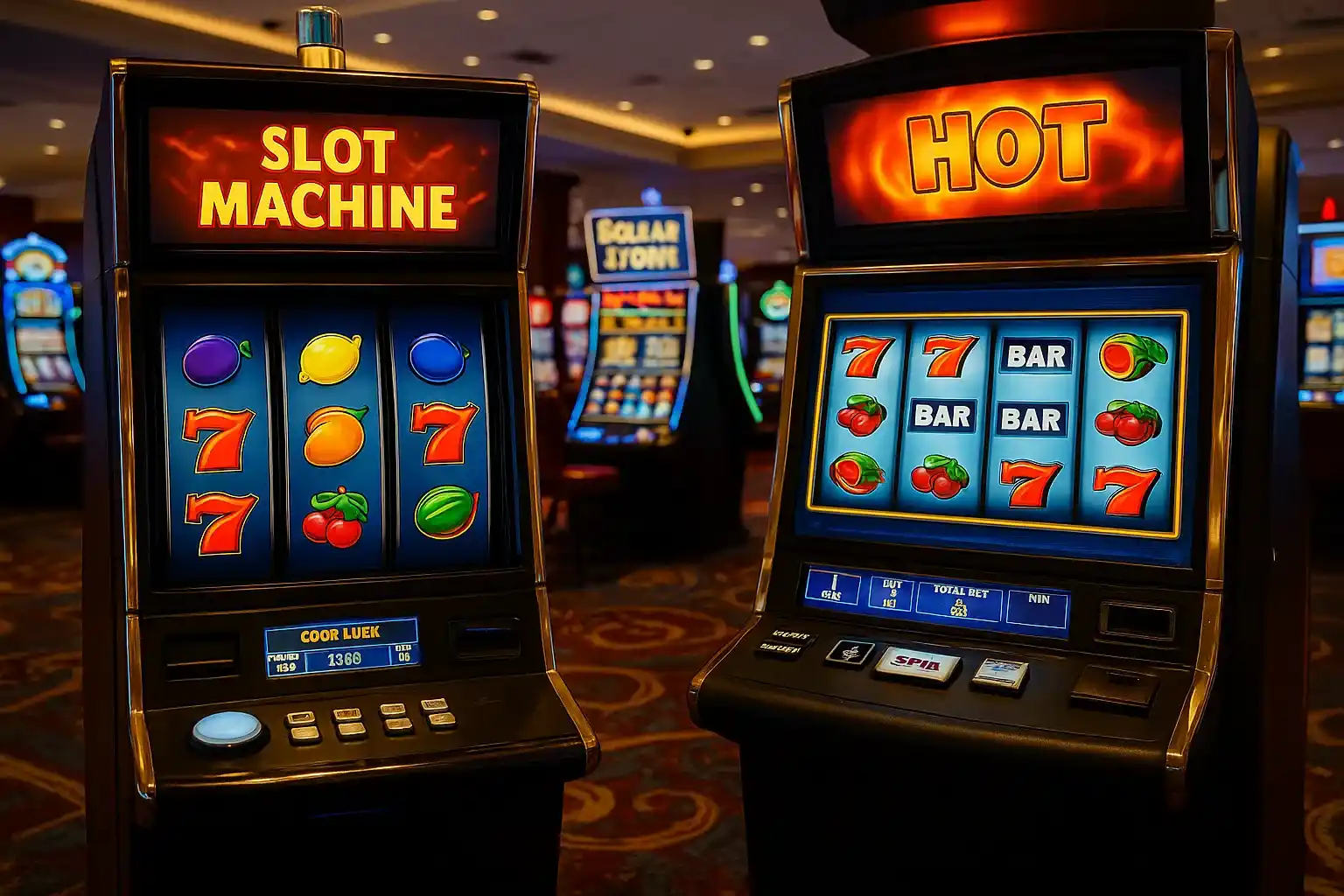Slot machines have undergone countless innovations since their mechanical origins, yet one of the most noticeable differences today is reel orientation. Some machines showcase vertical spinning columns, while others use a horizontal layout akin to old-school fruit machines. What drives this divergence in design? Drawing from my experiences on casino floors and behind the screens of online platforms, let’s unravel the evolution, psychology, and practical considerations that determine why some reels stand tall and spin, while others slide from side to side.
The History of Reel Orientation
Slot machines began as simple mechanical devices, and the orientation of their reels was dictated by mechanical constraints rather than design choices.
Mechanical Beginnings
When Charles Fey invented the first Liberty Bell slot in 1895, he used three physical reels aligned vertically. That axis was straightforward for gears, shafts, and springs to drive, and it set the standard. Players pulled a lever to turn a central shaft, sending the reels into motion. Vertical reels became synonymous with the slot experience by default, as mechanics favored this orientation for reliability and compact design.
Transition to Video Slots
Fast-forward to the 1970s: casinos started replacing mechanical reels with video displays. Developers mimicked the beloved vertical reel layout, but they also experimented. Horizontal reels offered a fresh take, allowing two or three rows of symbols to scroll sideways across a widescreen cabinet. By the 1990s and 2000s, both formats coexisted, and game designers could select either orientation to match creative and user-experience goals.
Design Principles Behind Vertical vs. Horizontal Reels
Reel orientation isn’t arbitrary. Several design principles guide whether developers choose a vertical or horizontal layout.
Screen Real Estate and User Experience
On a vertical display, reels can stretch edge to edge, giving each symbol more height. This allows intricate artwork and detailed animations that feel immersive. Horizontal reels, however, leverage widescreen cabinets to present multiple rows at once. It’s like comparing portrait mode to landscape photography: each conveys different emphasis.
When evaluating interface flow, some players prefer the steady rhythm of vertical spinning, while others find horizontal reels more dynamic—especially in bonus rounds where symbols slide in from the sides. That variation is particularly appreciated by players searching for casinos not on GamStop experiences, since many such platforms tailor their game designs to offer fresh aesthetics outside mainstream regulation.
Thematic and Mechanical Considerations
Designers often match reel orientation to theme. Adventure titles—like jungle quests or deep-sea explorations—lean vertical to evoke descending or climbing motions. By contrast, racing or futuristic sci-fi slots favor horizontal reels to mimic speed trails or scrolling star fields. Behind the scenes, developers also consider mechanical simplicity: vertical reels on video slots can reuse legacy vertical cabinet designs, while horizontal layouts may require custom hardware or UI adjustments.
Player Psychology and Engagement
Choices in reel orientation impact how players experience suspense, timing, and visual focus.
Vertical Reels and Scrolling Excitement
Vertical reels emphasize a top-to-bottom journey. As symbols cascade downward, each line feels like a fresh chapter—ideal for “avalanche” or “rolling reels” mechanics where winning symbols disappear and new ones drop in. This continuous flow taps into our innate anticipation: we watch each symbol fall, hoping it forms a pattern.
Horizontal Reels and Classic Nostalgia
Horizontal reels, on the other hand, evoke vintage fruit machines where symbols glide across. That side-to-side animation feels nostalgic, reminding players of the clinking sounds and flashing lights of traditional arcades. Psychologically, horizontal motion can feel more playful and lighthearted, making it appealing to casual audiences who associate it with simpler gaming eras.
Technical and Platform Influences
Beyond psychology and design, platform requirements and hardware constraints play a role.
Mobile Compatibility
On smartphones and tablets, screen orientation matters. Vertical reels map well to portrait mobile screens, using maximum vertical real estate without forcing users to rotate their devices. Many mobile-first developers default to vertical layouts for ease of use, ensuring controls and payouts remain visible without scrolling.
Hardware Constraints on Casino Floors
Land-based casinos have cabinets that dictate display size and aspect ratio. Manufacturers may offer vertical-screen cabinets with specific GPUs and monitors. To introduce a horizontal-reel game, operators must slot in a different cabinet or retrofit existing hardware—an investment that requires confidence in player demand. As a result, games that prove successful online with horizontal reels sometimes take longer to appear in brick-and-mortar venues.
Case Studies of Popular Slot Titles
Looking at successful games helps illustrate the impact of reel orientation.
Vertical Reel Hits
Titles like “Mega Moolah” and “Fishin’ Frenzy” cling to the classic vertical format. Their success stems from clear, tall symbols that drop into place, reinforcing the “reel” concept. Players familiar with these layouts find comfort in their predictability, which can encourage repeat play and longer sessions.
Horizontal Reel Favorites
Conversely, games such as “Starburst XXXtreme” and “Immortal Romance” have horizontal variants that offer multi-row displays and side-scrolling animations. These formats draw in players with dazzling visuals and rapid-fire symbol transitions, contributing to higher engagement during promotional events where novelty matters.
Implications for Casinos and Developers
Design choices around reel orientation carry broader consequences.
Balancing Innovation and Familiarity
Developers must weigh the appeal of innovation against the need for familiarity. Vertical reels offer a tried-and-true experience, minimizing learning curves. Horizontal reels push boundaries but risk alienating traditionalists. The best studios often release versions in both orientations, allowing players to choose.
Regulatory and Compliance Factors
In some jurisdictions, labels like GamStop regulate certain player protections and game offerings. Platforms advertising as casinos not on GamStop often highlight unique game designs, including less conventional reel layouts. Developers partnering with these platforms must ensure their games still meet technical compliance and fair-play standards, regardless of orientation.
Future Trends in Reel Orientation
What’s next for how we view spinning symbols?
Responsive and Adaptive Layouts
Imagine a single game that shifts between vertical and horizontal layouts based on device orientation or player preference. Responsive UI frameworks could allow real-time adaptation, giving players control over their visual experience without sacrificing payout structures or mechanics.
VR, AR, and Beyond
Virtual reality casinos open new horizons for reel design. Vertical and horizontal concepts may merge into 360° spinning cylinders or holographic strips that float before you. Augmented reality could overlay reels onto physical tables, inviting players to toggle orientation with a gesture. As immersive tech matures, traditional screen constraints will fade, and developers will craft entirely new spatial experiences.
Conclusion
Reel orientation is far more than an aesthetic choice; it shapes gameplay flow, player psychology, and technical viability. Whether spinning down in vertical columns or sliding across in horizontal rows, each orientation offers unique advantages. As casinos and developers continue to innovate—both online and on the floor—we’ll see even more creative layouts emerge. Next time you sit down at a machine, take a moment to note the reel direction and consider the thoughtful design decisions behind every spin.








